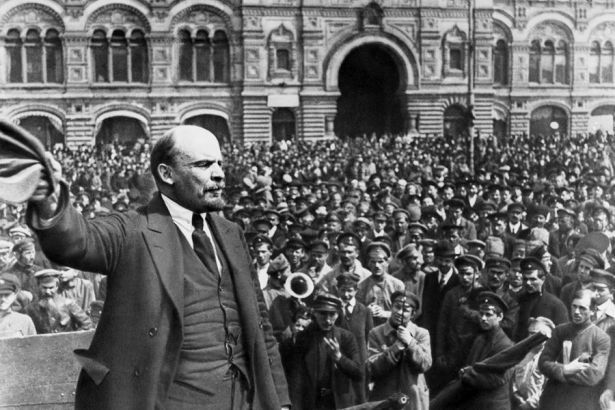What is October Revolution?
- October Revolution, also called Bolshevik Revolution, (Nov. 6–7, 1917), was the second and last major phase of the Russian Revolution, with the first being February Revolution.
- By 1917 the bond between the tsar and most of the Russian people had been broken.
- Governmental corruption and inefficiency were rampant.
- The tsar’s reactionary policies, including the occasional dissolution of the Duma, or Russian parliament, had spread dissatisfaction even to moderate elements.
- The inefficient prosecution of World War I was the final straw.
- Ill-equipped and poorly led, Russian armies suffered catastrophic losses against German armies.
- Riots over the scarcity of food broke out in the capital, Petrograd on February 24 (March 8), 1917.
- Tsar Nicholas II was forced to step down.
- More than 300 years of rule by the Romanov dynasty came to an end as a result of February Revolution.
- A committee of the Duma appointed a Provisional Government to succeed the autocracy.
- Soon the provincial government proved to be incompetent.

- At the end of October Revolution, the Bolsheviks led by Lenin replaced the provisional government, inaugurating the Soviet regime.
What are the positive impacts of Russian Revolution?
- It brought home to the ruling classes of Europe the urgency of making concessions to workers.
- These took the form of the public provision of health, education and housing.
- It is built on the premisies that all value is created by labour, entitling them to a larger share of the surplus than the bare necessities.
- The other consequence of the Russian Revolution was for Europe’s colonies.
- The early communist movement had a global ambition aiming for the emancipation of all subject peoples. This was to have an impact on India.
- The Soviet declaration of equality of all nations and assertion that the people can change the entire property system for their own good were ideas that directly affected our National Movement after 1917.
- This influence is reflected in the Karachi resolution of the Congress (1931) — outlining what free India would be like — in the country’s five-year plans, public sector expansion and land reforms in the first 30 years of Free India.
- Our Constitution was framed (and amended) so as to make this possible. As our Constitution’s preamble stands today, we ought to be a “secular, socialist” republic.
What are the negative impacts?
- Historical events are to be evaluated in terms of their consequences, not by its intentions or sentiments.
- The glory of the revolution was short lived till the death of Lenin.
- The vacuum created by his demise was taken advantage of by Josef Stalin to assume power.
- For the next three decades, his role was not very different from that of the Tsar who had been deposed.
- The opposition was annihilated, labour camps for dissidents established, the free press disbanded and the peasantry dispossessed.
- Among the nationalities, the Ukrainians who had once dreamt of independence were suppressed.
- Grain was shipped out of their country to the rest of the Soviet Union, causing famine and deaths. A people were crushed.
- Dissenters were assigned to work in nickel mines with their bare hands in sub-zero temperature.
- It is worse than those of the European regimes in their colonies because the communist movement & the Russian Revolution were premised on the promise of power to the people.
- Instead, under Stalin, it gave rise to a bureaucracy, the rationale of which was to maintain the regime perpetrated by the communist party.
- Despite the internationalist stance of the Comintern, Stalin was not sympathetic to the Indian national movement, painting it as bourgeois in character.
What lies ahead?
Communism collapsed in 70 years. But the fact that socialism was successfully implemented and maintained for so long is an indication that it remains (with some modifications) as a practicable and equitable alternative to capitalism.
